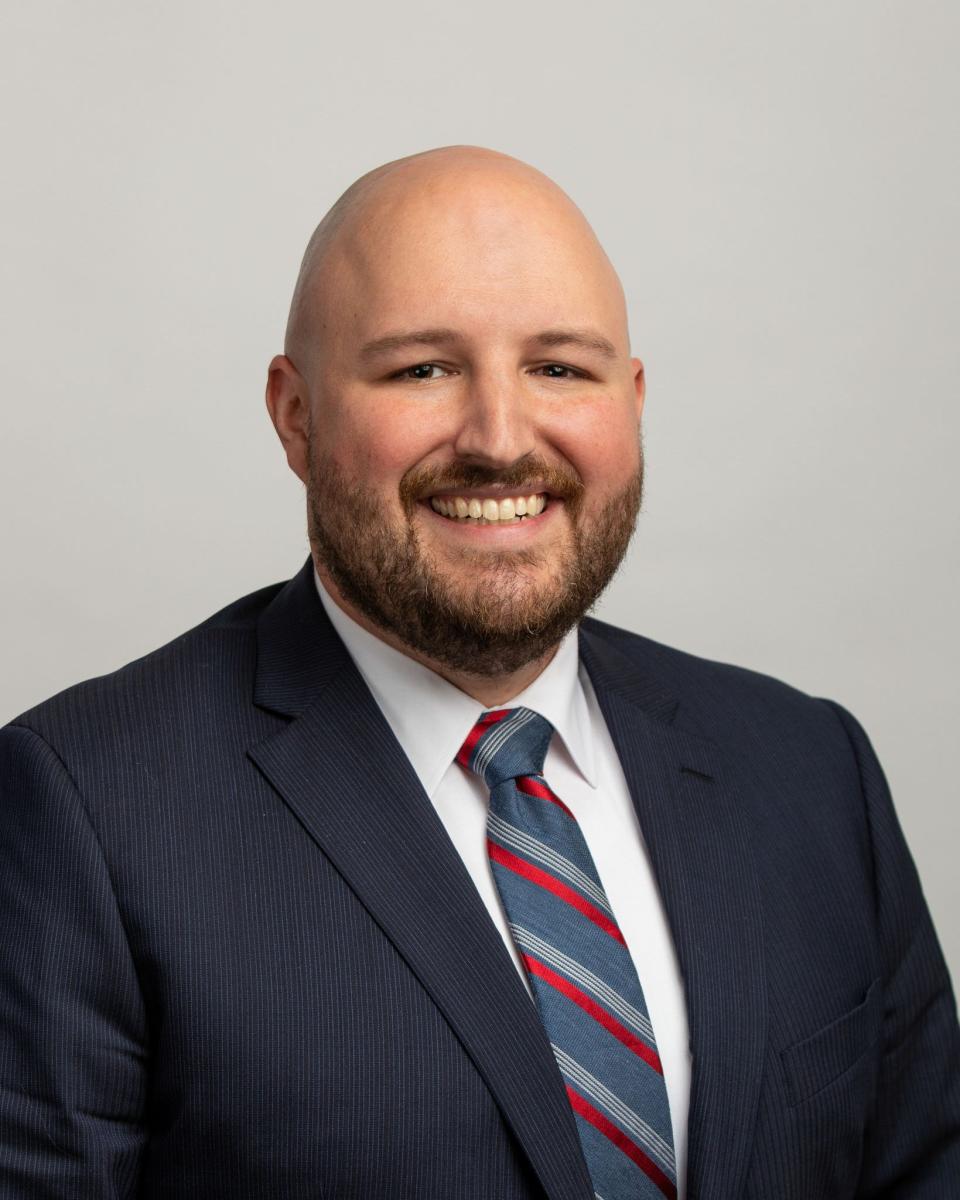The Onion makes a serious point. Police violated Ohio man's rights for mocking them.
The Onion, the nation's most well-known parody publication, did something this week it has never done before: It filed a brief with the U.S. Supreme Court.
In a legal filing every bit as persuasive as funny, The Onion used its mastery of parody to urge the court to hear the case of Anthony Novak, an Ohio man arrested and charged with a felony for parodying his local police on Facebook.
The case demonstrates how qualified immunity thwarts constitutional rights – in this instance, permitting police to arrest, jail and prosecute a man for making fun of them on social media. As attorneys representing Novak, we are asking the Supreme Court to promote First Amendment principles above the doctrine of qualified immunity.
'We no crime' parody account
Bored waiting for the bus after work, Novak, an aspiring comedy writer, decided to create a parody Facebook page mocking the police in Parma, Ohio, in 2016. While the page resembled the real thing, it lacked verification and tellingly displayed the satirical slogan: “We no crime.”

Novak published six posts – all obvious parody. They included a announcement that new officers would be recruited based on 15 multiple-choice questions followed by a hearing test and “strongly encouraging minorities to not apply,” and an “UPDATE” about a “Pedophile Reform event,” where participants who solved a series of puzzles would be taken off the sex-offender registry and made honorary police officers.
Parma police were not amused. A police officer announced on TV a criminal investigation into the parody page. So, Novak took it down. It had been online for only 12 hours.
Criminal justice: Tempted to push for tough-on-crime policies? You need to meet these 3 people.
America is ready for marijuana reform: Biden's pardon announcement proves it.
Despite the page’s removal, police pressed on. Nearly a month after Novak shuttered the parody account, police arrested him, raided his apartment, seized his electronics and jailed him for several days. To justify their actions, police and prosecutors manufactured a charge under an Ohio hacking statute, which makes it a felony to use a computer to disrupt police operations.
Under their theory, Novak’s posts had disrupted police because 11 people had called the nonemergency line to tattle on the page. Remarkably, several judges approved the charges, and Novak was subjected to a full criminal trial. A jury found him not guilty.
Out from under the criminal process, Novak sued the police who violated his rights. Unsurprisingly, the officers asserted qualified immunity – a legal doctrine the Supreme Court created in 1982 to shield government workers from constitutional liability unless their specific actions were addressed in an earlier court decision involving similar facts.
Opinion alerts: Get columns from your favorite columnists + expert analysis on top issues, delivered straight to your device through the USA TODAY app. Don't have the app? Download it for free from your app store.
First Amendment rights at stake
Novak’s case ultimately made it to the federal appeals court in Ohio, which sided with the officers. Not because Novak's posts were not parody or because parody is not protected by the Constitution. They were, and it is. Instead, the court used qualified immunity to side step Novak’s First Amendment rights, dismissing his case because “the officers could reasonably believe that some of Novak’s Facebook activity was not parody,” since he had deleted Facebook comments calling his parody fake.
Qualified immunity: Did a Border Patrol agent rough you up? The Supreme Court fails to see how judges can help.
Free speech: State tramples our First Amendment rights as Christian artists. We're fighting back.
After all, the court explained, no earlier decision specifically held “deleting comments ... is protected speech.”
Now, Novak with the help of the nonprofit Institute for Justice, where we are attorneys, is asking the Supreme Court to put an end to the many injustices he and others like him have faced because they've found themselves on the wrong side of qualified immunity.
The Onion’s amicus explains the absurdity of that ruling under some of the oldest and most foundational concepts of free speech: Requiring writers to spoil the joke would disarm the rhetorical power of parody. Novak’s petition to the Supreme Court advances that essential First Amendment issue but also illustrates how destructive qualified immunity is to our constitutional rights.
Opinions in your inbox: Get exclusive access to our columnists and the best of our columns every day
Sure, the Constitution says we have freedom of speech and the right to be free from unreasonable searches and seizures, but what good are those freedoms if they cannot be protected in modern courts? Would you speak out against government officials on social media knowing there is a good chance you could be arrested and jailed? Would journalists cover difficult topics with that threat looming over them?


That’s what qualified immunity allows and is one of the many reasons the Supreme Court must take Novak’s case and overturn the doctrine.
Patrick Jaicomo and Anya Bidwell are lawyers with the Institute for Justice, heading its Project on Immunity and Accountability. They represent Anthony Novak and others who have had their constitutional rights denied through immunity doctrines such as qualified immunity.
This column is part of a series by USA TODAY Opinion about police accountability and building safer communities. The project began in 2021 by examining qualified immunity and continues in 2022 by examining various ways to improve law enforcement. The project is made possible in part by a grant from Stand Together, which does not provide editorial input.
You can read diverse opinions from our Board of Contributors and other writers on the Opinion front page, on Twitter @usatodayopinion and in our daily Opinion newsletter. To respond to a column, submit a comment to letters@usatoday.com.
This article originally appeared on USA TODAY: The Onion Supreme Court brief: Comedy site files amicus in parody case

